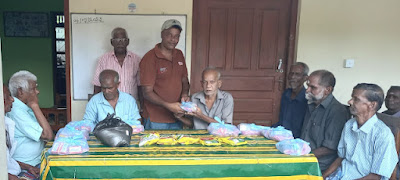State-Owned Enterprises (SOEs) in Sri Lanka are undergoing
significant reforms to improve their efficiency and performance. In particular,
public enterprises engaged in commercial activities are being optimized through
public-private ownership. Former Finance Minister Ravi Karunanayake revealed
that these reforms aim to generate revenues for the state, reduce administrative
burden, and distribute ownership and management to the private sector. This
article explores the current state of SOEs in Sri Lanka, the need for reform,
and the potential benefits of public-private ownership.
Current State of SOEs
Sri Lanka has a total of 527 SOEs, with 52 of them identified as strategically important. Out of these, 39 are currently making profits, while 13 are still facing losses. The losses incurred by these 13 institutions amount to Rs. 1,029 billion, while the profits made by the remaining 39 enterprises reach Rs. 218 billion. These figures highlight the urgent need for performance optimization and financial restructuring within SOEs.











